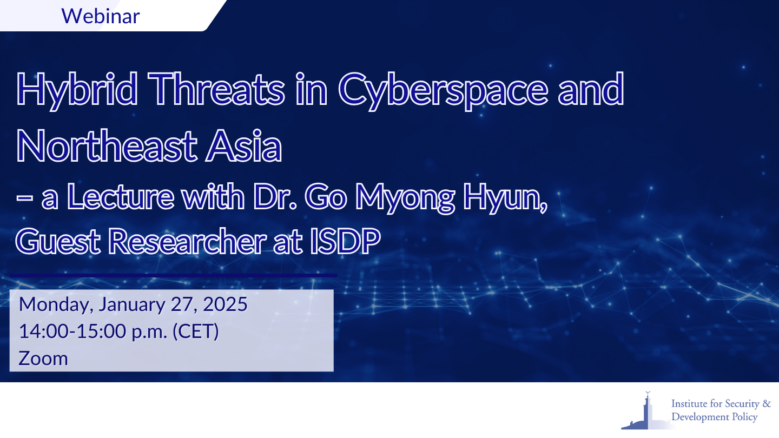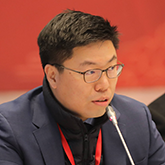Hybrid Threats in Cyberspace and Northeast Asia

Did you miss this webinar? The full recording is available on ISDP’s YouTube channel.
ISDP’s Korea Center is pleased to host a guest lecture by Dr. Go Myong Hyun, Guest Researcher at ISDP and Senior Fellow and Director of the Hybrid Threat Research Center at the Institute for National Security Strategy.
The lecture will delve into the evolving nature of hybrid threats in Northeast Asia and the challenges they pose to regional stability. Hybrid threats involve a combination of military and non-military tactics by state or non-state actors, often in a ‘grey zone’ where the distinction between armed conflict and peace becomes blurred.
Key questions to be addressed in this lecture will include: What are the primary hybrid threats in Northeast Asia? How are they reshaping the security landscape? What strategies can effectively counter these challenges, and how can international cooperation be strengthened to address them? The discussion will also examine foreign interference campaigns in the Korean cyber domain, highlighting the increasing role of data in shaping contemporary security dynamics.
The lecture will be entirely led by Dr. Go, with the technical assistance of the ISDP’s Korea Center. The discussion will begin with an overview of the evolving nature of hybrid threats in Northeast Asia, before examining their broader implications for regional stability and security dynamics. Dr. Go Myong Hyun will explore how these threats are reshaping policies in the region, focusing on strategies to counter them and the consequences on international cooperation. Given its key role in the region and its exposure to cyber and information warfare, Northeast Asia remains at the forefront of these multifaceted security challenges.
Program:
14.00 – 14.10 – Welcome & Introductory Remarks
14.10 – 14.45 – Lecture
14.45 – 14.55 – Q&A Session
14.55 – 15.00 – Concluding Remarks
About our speaker:
 Go Myong Hyun is a senior fellow and director of Hybrid Threat Research Center at the the Institute for National Security Strategy. While at ISDP, he will focus on hybrid threats in Northeast Asia and the international coordination to counter them.
Go Myong Hyun is a senior fellow and director of Hybrid Threat Research Center at the the Institute for National Security Strategy. While at ISDP, he will focus on hybrid threats in Northeast Asia and the international coordination to counter them.